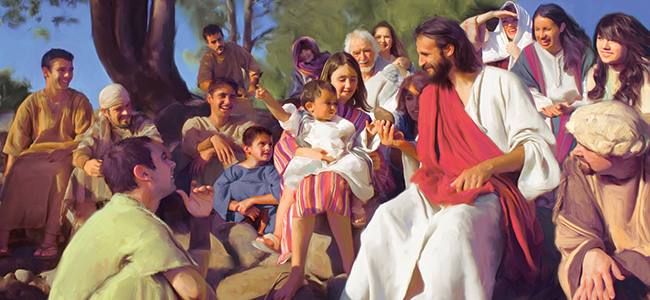God’s Law: The Grand Charter of Freedom

What do keeping the Sabbath, personal ministry, and the baptism of the Holy Spirit have to do with each other? You might be surprised to find out they are inseparably linked.
The Sabbath and personal ministry are deeply connected in Isaiah 58. In this chapter, God says that you can’t delight in the Sabbath day without first having a personal ministry for the less fortunate.
Isaiah 58 exposes the folly of an artificial style of Sabbathkeeping that appears when God’s professed people make a religious show as a pretense. The Lord unmasks their supposed “holiness” and reveals it as nothing but sanctimoniousness. Here’s what God found wrong with the Sabbath religion of His people:
1. Verses 1 & 2: While transgressing and sinning, they sought God daily and supposedly “delighted” to know his ways. They took “delight” in approaching to God. Just like “fake news,” this was fake religion.
2. Verses 3–5: The basis of their religion was not faith in God, but faith in what they could do to win the favor of God. They fasted and moped around in public—wishing that God would take notice of their sad face. But they were two-faced. While they looked holy-faced and claimed to be representatives of God on earth, they neglected the poor and were utterly cruel-faced to the less fortunate. They underpaid their employees and loved debate and strife.
Does this sound like you? Let’s search our hearts for a moment. You may say, “This doesn’t apply to me; I don’t have any employees, I don’t fast and I get along with everyone!”
You might not underpay your employees, you might not fast with a sad face, you might not delight in debate and strife—but do you have a personal ministry for the poor, the widows, the less fortunate? If you don’t, you are not truly keeping the Sabbath. See Isaiah 58:6, 7, 13 it shows us that only when we “loose the bands of wickedness,” when we “undo the heavy burdens,” when we “let the oppressed go free,” when we “break every yoke,” when you “deal your bread to the hungry,” when you “bring the poor that are cast out to thy house” and when you clothe the naked—it’s only then that you can call the Sabbath a delight, honorable.
Why is that so? It’s because this work is gospel work. It’s because the opposite of this is to be two-faced, and a two-faced, selfish person takes no delight in the Sabbath, because it interferes with his or her plans to make more money, to do “their own pleasure.” To such persons, the Sabbath is an inconvenience—or worse, it becomes just another tool to use in their endeavor to appear righteous.
Too often, the Sabbath bears no relation to who we are and what we do during the week. Our Sabbath services too often consist of feeding ourselves doctrines, debating the truth to see who knows it better, and feeding ourselves a great potluck lunch and then going home to “wait it out” until sunset. This seems to me a very selfish outlook of the Sabbath.
But let’s look at Jesus for a moment and see what the Sabbath meant for Him. It was His custom to go to church on Sabbath. But He also healed people on Sabbath. It seems to me that Jesus’ Sabbathkeeping was never disconnected from His ministry for the lost. His Sabbathkeeping was never a selfish exercise in feeding Himself enough spiritual food to keep Him going for the rest of the week.
And here is where we see the connection between Sabbathkeeping and the baptism of the Holy Spirit for ministry. In Luke 4:14–19, we read that “Jesus returned [in the power of the Spirit] into Galilee . . . and he came to Nazareth, where he had been brought up: and, as his custom was, he went into the synagogue on the Sabbath day, and stood up for to read.”
What did He read? “And there was delivered unto him the book of the prophet Esaias [Isaiah]. And when he had opened the book, he found the place where it was written, The Spirit of the Lord is upon me, because he hath anointed me to preach the gospel to the poor; he hath sent me to heal the brokenhearted, to preach deliverance to the captives, and recovering of sight to the blind, to set at liberty them that are bruised, to preach the acceptable year of the Lord.”
Now let us notice something very carefully here. It was because Jesus was anointed to do this work of deliverance that He was filled with the Spirit. His Sabbathkeeping was never disconnected from His work of saving and ministering to people’s needs.
So next time you go to church on Sabbath, ask yourself these questions:
Why am I keeping the Sabbath?
Is the Sabbath just a day when I go to church and feed my own soul once a week?
Or is it a day that is emblematic of my spirit-anointed ministry that brings deliverance and support to the lost, the poor, and the needy?
God made the Sabbath a sign of deliverance to the Israelites from their Egyptian bondage and the Sabbath is then truly delightful and significant when we are workers together with God in ministering to the lost, the captive, the poor, and those in need.